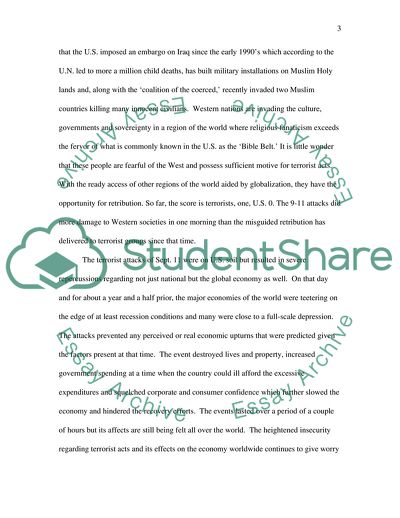Cite this document
(Nations Cannot Fight Terrorism Being Terrorists Themselves Essay, n.d.)
Nations Cannot Fight Terrorism Being Terrorists Themselves Essay. Retrieved from https://studentshare.org/military/1712459-contemporary-issues-in-global-politics-can-the-war-on-terrorism-be-won
Nations Cannot Fight Terrorism Being Terrorists Themselves Essay. Retrieved from https://studentshare.org/military/1712459-contemporary-issues-in-global-politics-can-the-war-on-terrorism-be-won
(Nations Cannot Fight Terrorism Being Terrorists Themselves Essay)
Nations Cannot Fight Terrorism Being Terrorists Themselves Essay. https://studentshare.org/military/1712459-contemporary-issues-in-global-politics-can-the-war-on-terrorism-be-won.
Nations Cannot Fight Terrorism Being Terrorists Themselves Essay. https://studentshare.org/military/1712459-contemporary-issues-in-global-politics-can-the-war-on-terrorism-be-won.
“Nations Cannot Fight Terrorism Being Terrorists Themselves Essay”. https://studentshare.org/military/1712459-contemporary-issues-in-global-politics-can-the-war-on-terrorism-be-won.


